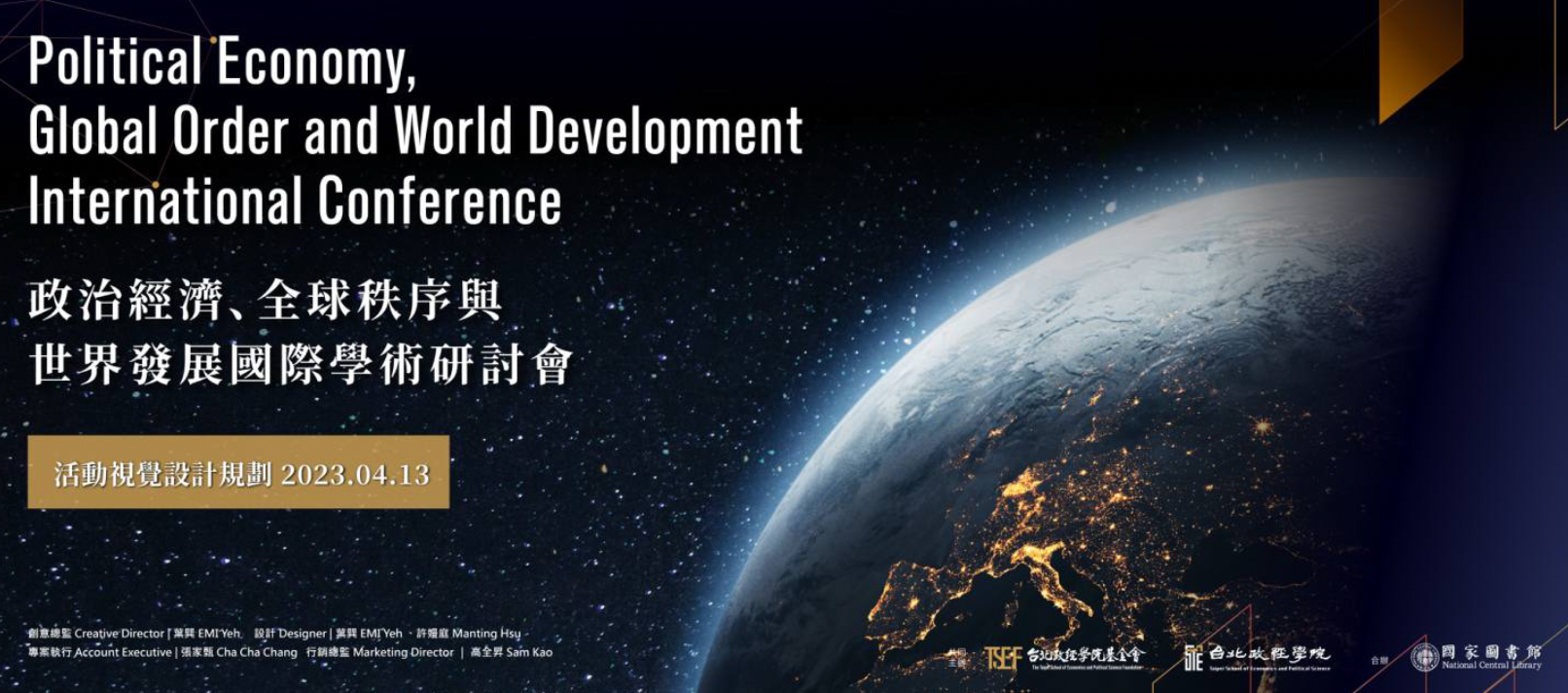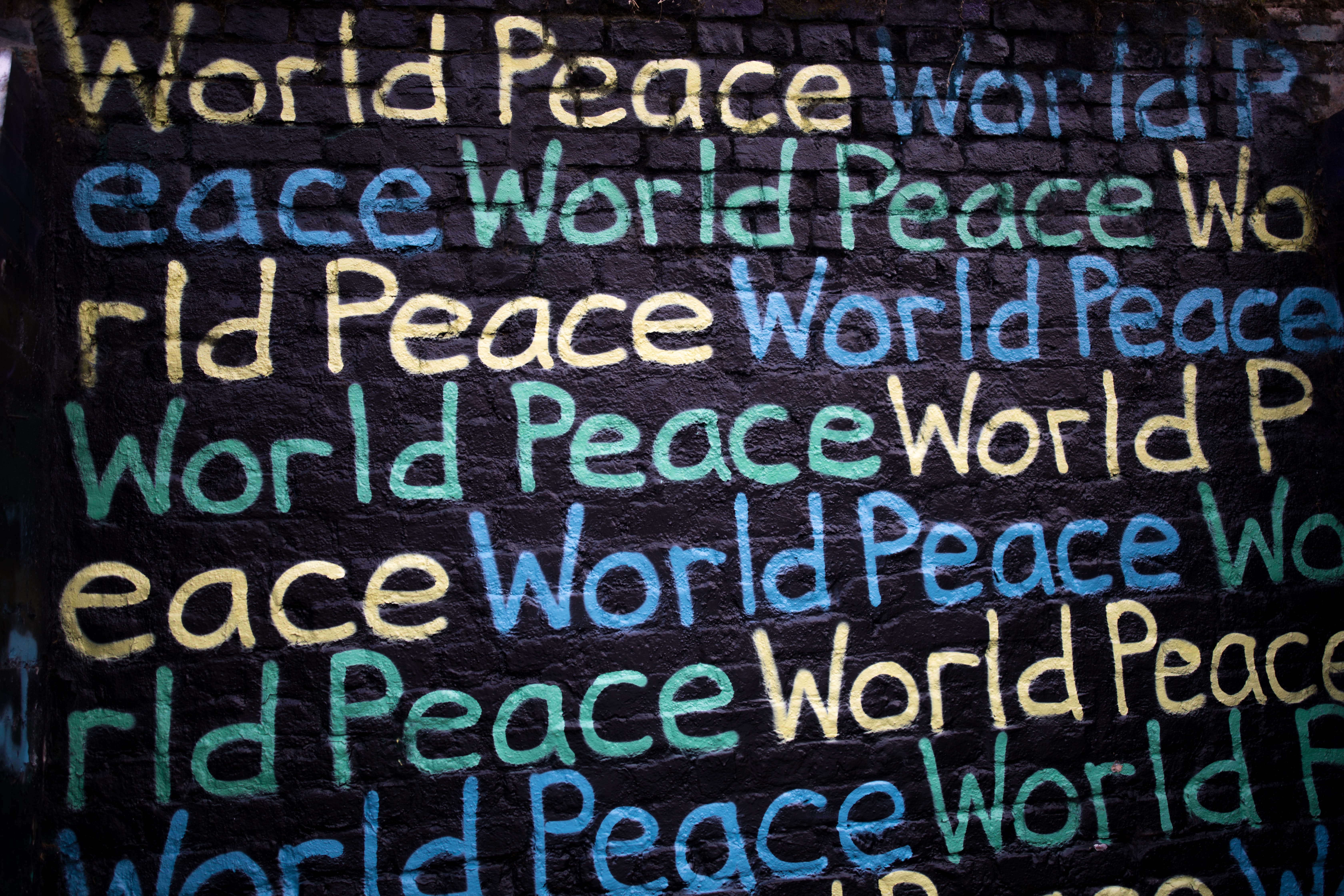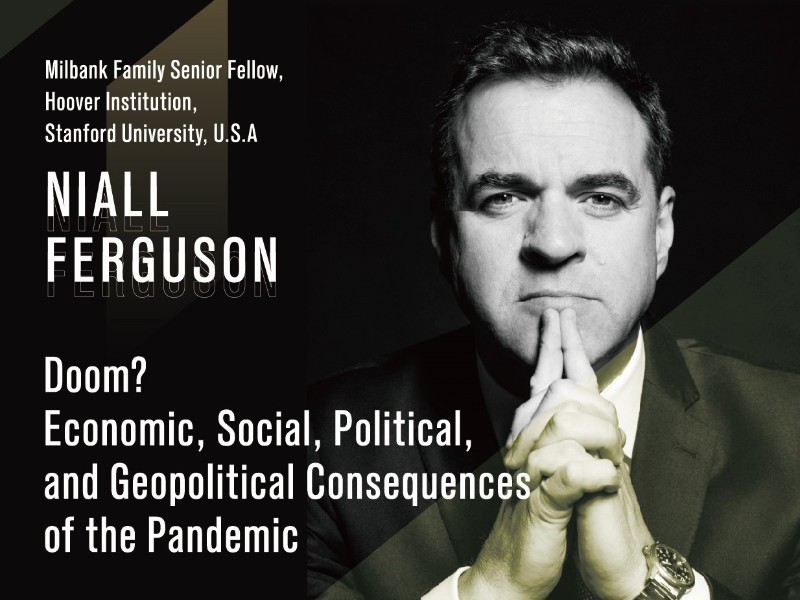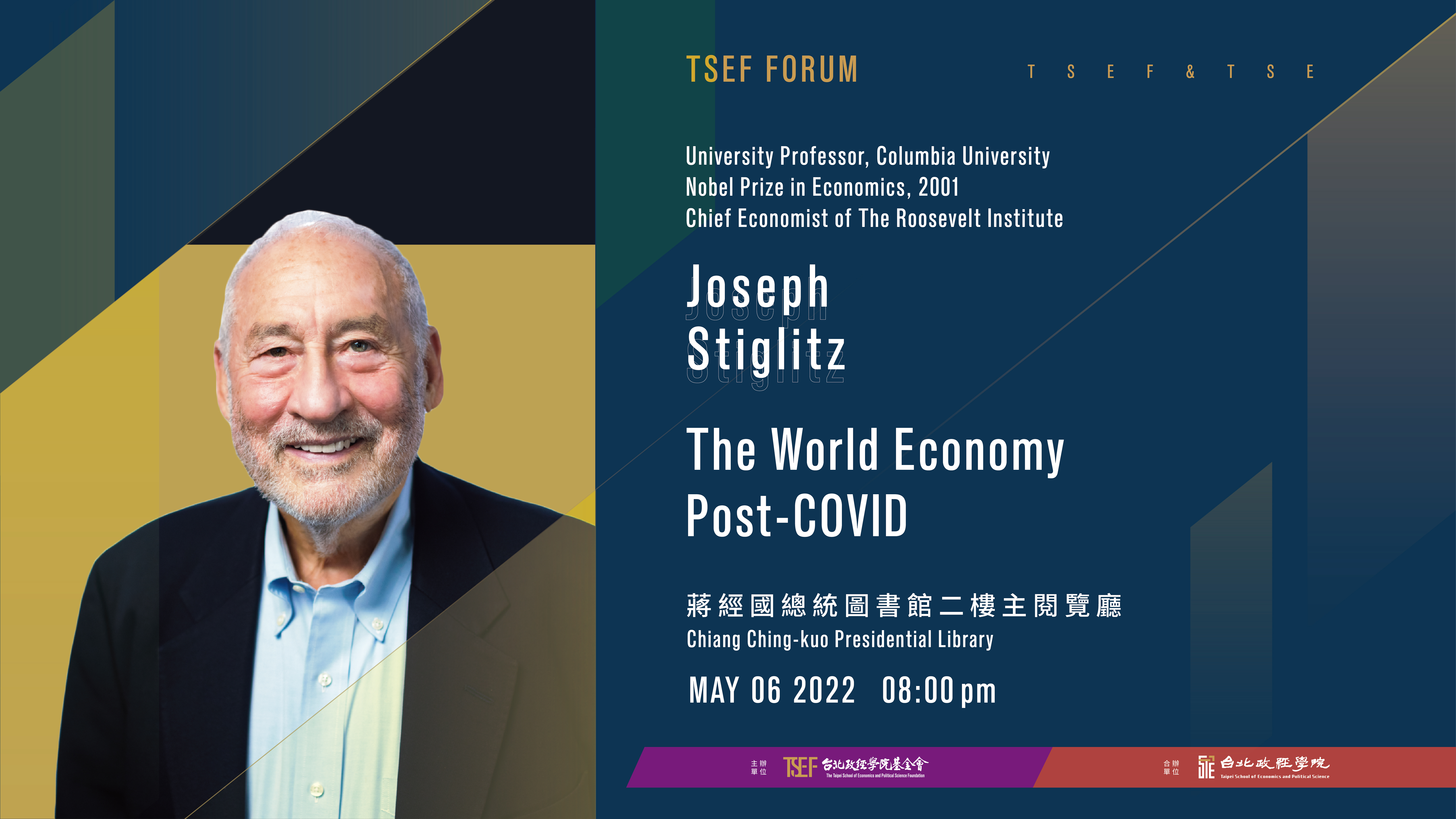Semiconductors and Geopolitics Symposium:
The Future of the Global Semiconductor Industry
Host Institutions:
- Rajawali Foundation Institute for Asia, Harvard Kennedy School
- Fairbank Center for Chinese Studies, Harvard University
- M-R Center for Business and Government, Harvard Kennedy School
- Taipei School of Economics and Political Science (TSE), National Tsinghua University
Supported by: Taipei School of Economics and Political Science Foundation (TSEF)
Dates: September 11
Venue: Malkin Penthouse, Harvard Kennedy School
September 11:
Location: Malkin Penthouse
8:30am-9am – Welcome: Tony Saich (Harvard Kennedy School) and W. John Kao (President, National Tsing Hua University)
9am-10:30am — Panel A – Risk & Global Value Chains: Where is the Leverage?
Speakers: Chin-Tay Shih (National Tsing Hua University); Willy Shih (Harvard Business School); Kazumi Nishikawa (Ministry of Economy, Trade & Industry, Japan)
Chair: Chris Miller (Tufts University)
10:30am-10:45am — Break
10:45am-12pm — Panel B – Talent & Eco-systems: What Drives the Shortage?
Speakers: Burn J. Lin (National Tsing Hua University); Rachel Lipson (US CHIPS Office)
Chair: Edward Cunningham (Harvard Kennedy School)
12pm-12:30: Break
12:30pm-1:30pm – Lunch
Location: Malkin
1:45pm-3:15pm — Panel C – Geopolitics & Free Trade: What are Costs of Current Tensions?
Speakers: Chang-Tai Hsieh (University of Chicago); Mark Wu (Fairbank Center, Harvard University), Laurie Self (Qualcomm)
Chair: Joseph Nye (Harvard Kennedy School)
3:15pm-3:30pm — Break
3:30pm-5pm — Panel D – From Reshoring to ‘Friendshoring’: Can Industrial Policy Work for Semiconductors?
Speakers: Tain-Jy Chen (Taipei School of Economic and Political Science, National Tsing Hua University); Fiona Murray (MIT)
Chair: Chang-Tai Hsieh (University of Chicago)
Chairman Huang’s Dinner Speech
(The Charles Hotel,9月12日)
Prof. Tony Saich, Prof. Mark Wu, President Kao, distinguished speakers, ladies and gentlemen:
Relationship with Harvard
Today, we gather here to celebrate the conclusion of a remarkable Symposium on Semiconductors and Geopolitics. This occasion also brings to mind my time as a visiting scholar at the Fairbank Center at Harvard University from 1996 to 1998 and the advisership offered by Prof. William Kirby. My time at the Fairbank Center was more than an academic endeavor – it was an exploration of ideas, cultures, and diverse perspectives. Engaging with fellow scholars from around the world broadened my horizons and enlarged the scope of my intellectual realm.
Conferences at Harvard
During those two years, in collaboration with Prof. Ezra Vogel, I had the pleasure to bring together scholars from Harvard, Taiwan, and mainland China. The topics ranged from village elections on both sides of the Taiwan Strait to the evolution of their party-states over time. To my knowledge, the former was the first conference that examined this topic academically. The conference, indeed, attracted many outstanding scholars from the New-England-area, with the notable presence of Prof. Benjamin Schwartz and Prof. Roderick MacFarquhar. Professor Samuel Huntington and Prof. Juan Linz were both invited to be the keynote speakers.
Moreover, several young scholars who attended these conferences have also become very well-established in their own areas. Two of them, who were actively involved in organizing these conferences, are especially worth mentioning: Dr. Chia-long Lin and Prof. Yongnian Zheng. Dr. Lin is now the Secretary-General of Taiwan’s Presidential Office. Prof. Zheng is now the Director of the Advanced Institute of Global and Contemporary China Studies at the Chinese University of Hong Kong in Shenzhen. He is also, reportedly, one of the seven scholars who were invited to attend a meeting presided by Xi Jingping.
TSE and TSEF
Before I came to Harvard, I had been elected as a legislator in Taiwan for three times. After returning to Taiwan, I was a Control Yuan member twice, and the first minister of the Transitional Justice Commission.
Three years ago, I had the opportunity to receive a donation of 100 million US dollars to create a foundation and a world-class school of economics and political science. I invited various former ministers of education and university presidents to be board members of the Taipei School of Economics and Political Science Foundation. After an 18-month long preparation, the Foundation has successfully hosted four TSEF fora and a major international conference featuring distinguished speakers like Niall Ferguson, Daron Acemoglu, and Joe Stiglitz. Today’s semiconductor conference marks the Foundation’s international debut and it may well be the first conference of its scale to discuss this important topic. I’ve found that many conclusions from conferences held at Harvard eventually shaped policies adopted by the US government. I hope our conference today will also have such an impact in the near future.
Two Pillars
As one of our Forum speakers, Francis Fukuyama, famously pointed out, the collapse of the Soviet Union symbolized “the end of history” and the victory of democracy and market economy.
However, as noted by Cambridge professor, David Runciman, while democracy defeated Nazism and Stalinism in the 20th Century, in the 21th century, it faces the grave challenge of a pragmatic authoritarianism, and as professor Larry Diamond has observed, democracy appears to be going through a “midlife crisis”.
In particular, amidst the US-Sino chip war, it seems the US has adopted policies that have deviated from the principle of market economy, along with democracy, which are thetwo long-standing pillars of the American strength since its Founding.
Win-Win Solution
I am always impressed by Michael Oakeshott, who used to famously say: “History is what the evidence compels us to believe.” Therefore, I firmly believe that our discussion of the various issues surrounding the semiconductor industry would be significantly more fruitful when understood in a larger historical context and guided by the wisdom of the history.
Let us approach this challenge with foresight, collaboration, and an unwavering commitment to ensuring that the semiconductor industry continues to be a catalyst for progress rather than a source of conflict. By fostering understanding and cooperation, we can navigate the complexities ahead and build a win-win solution for generations.
Thank you and I wish everyone a pleasant evening.
Conference Photos
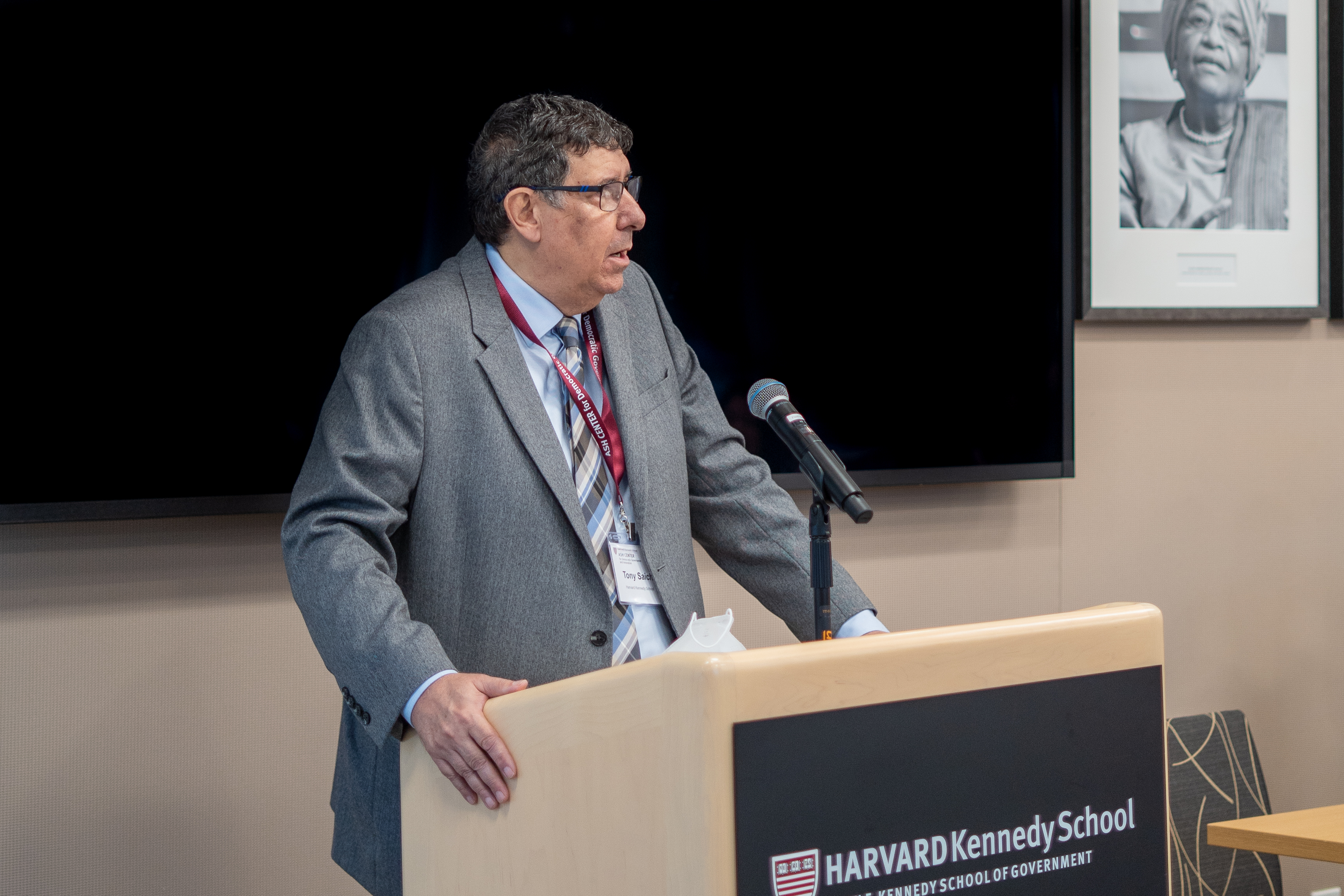
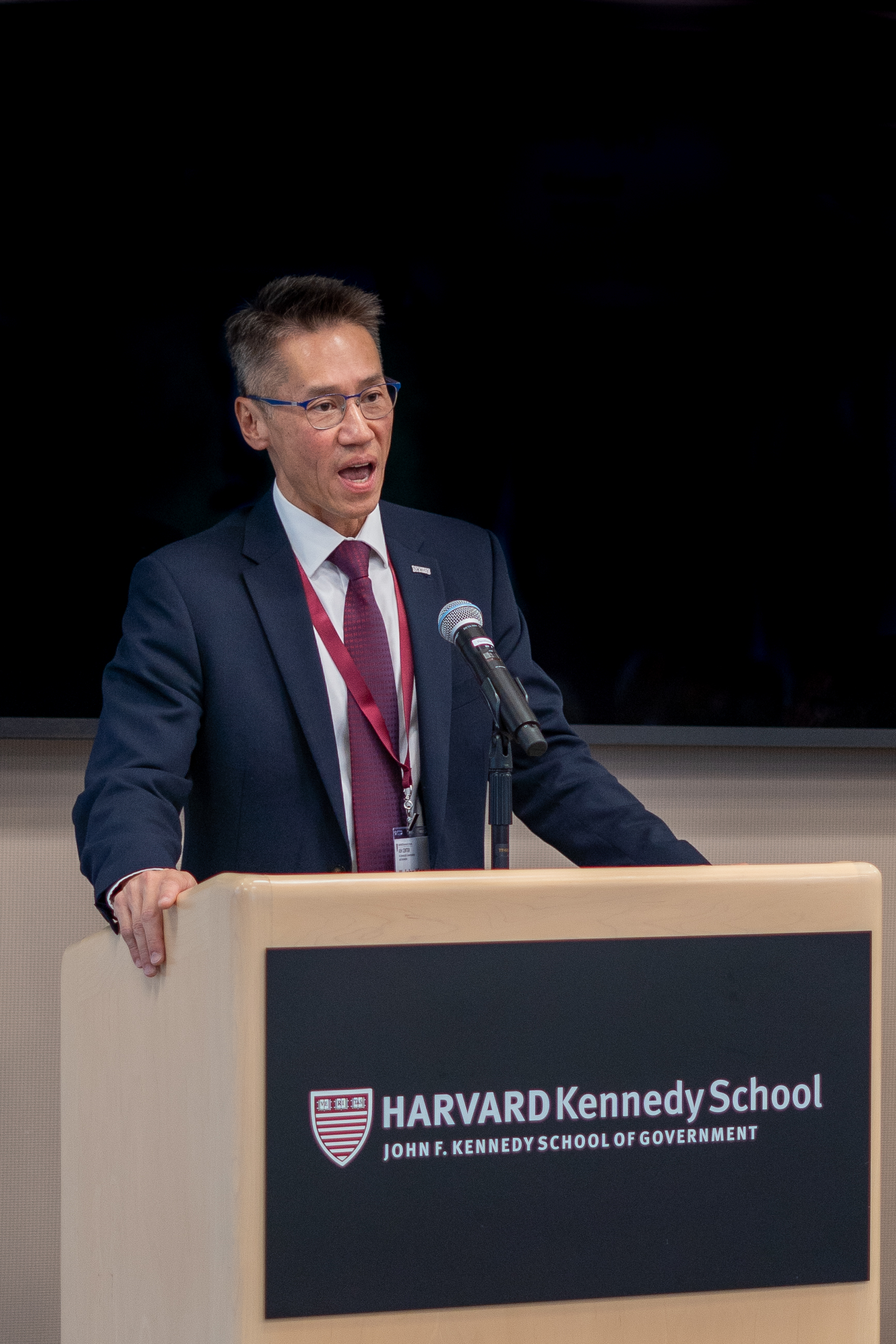
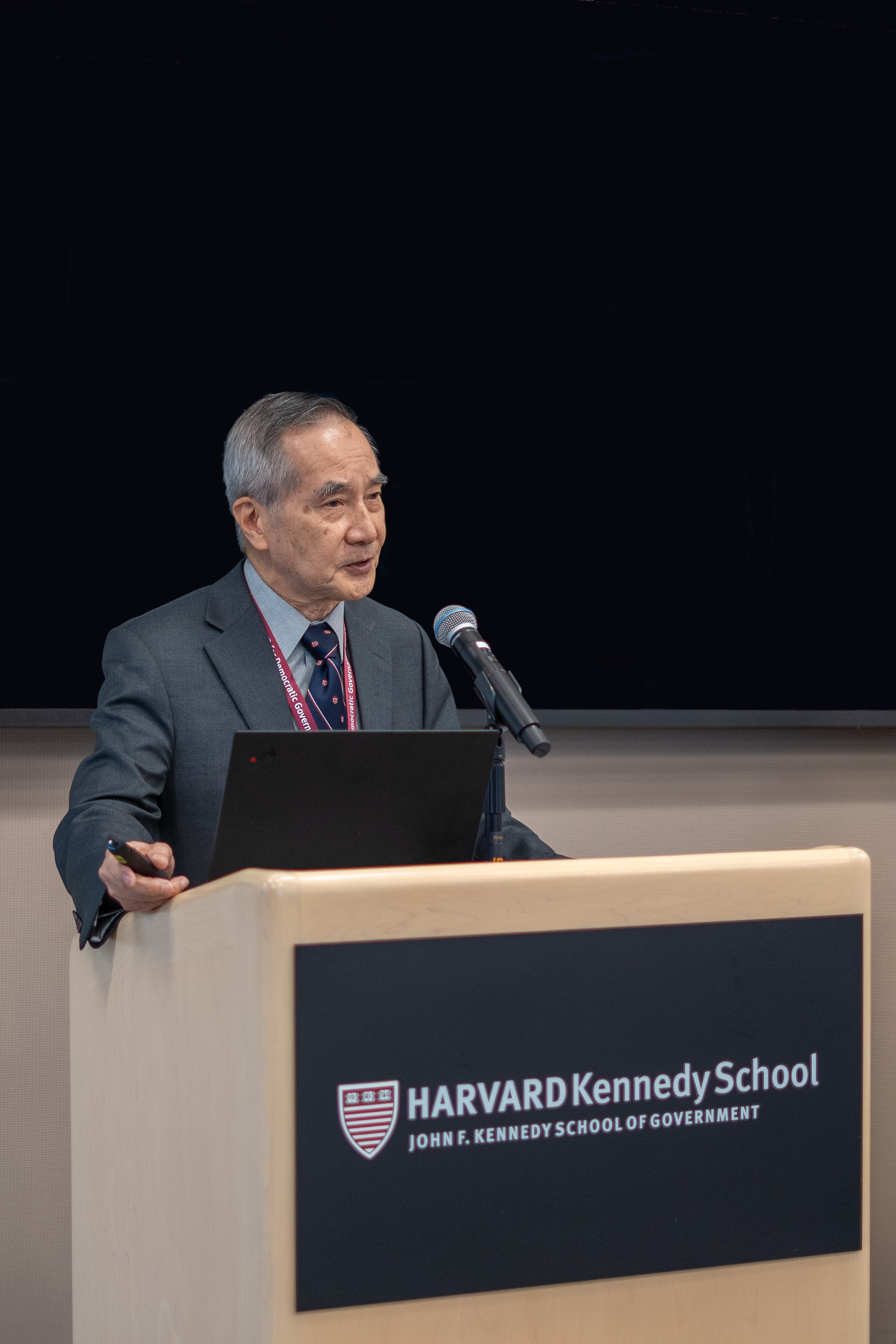
Panel A
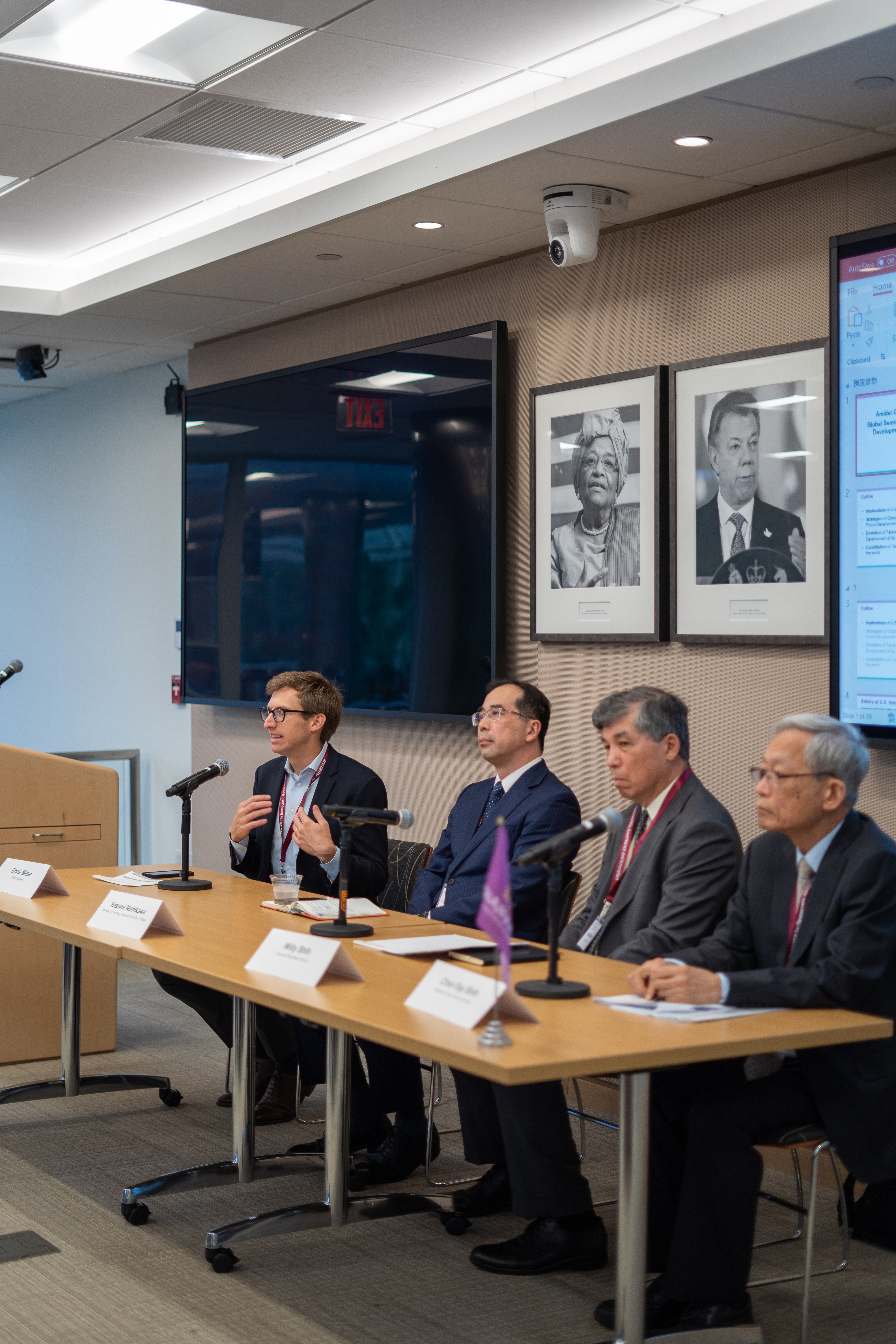
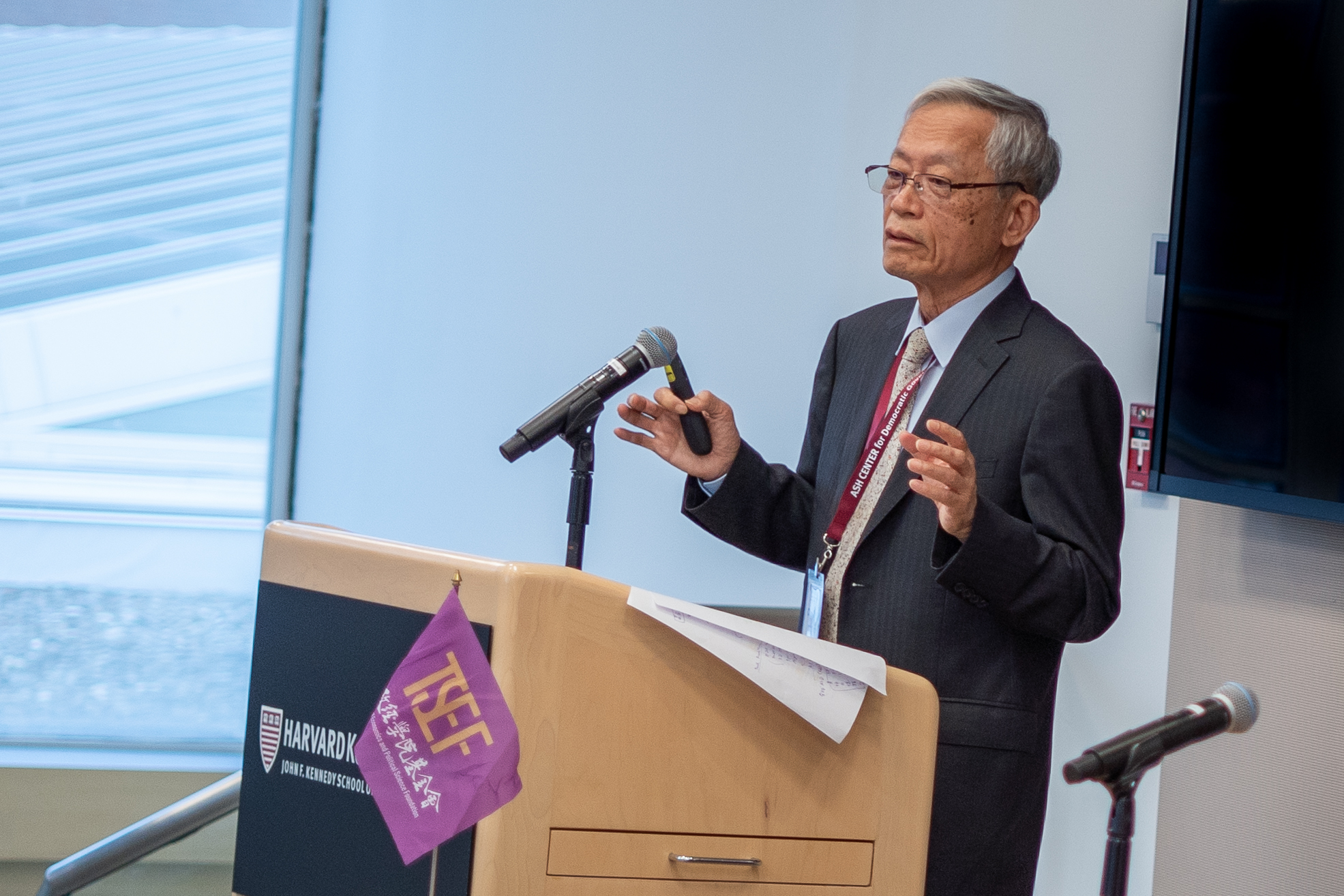
Panel B
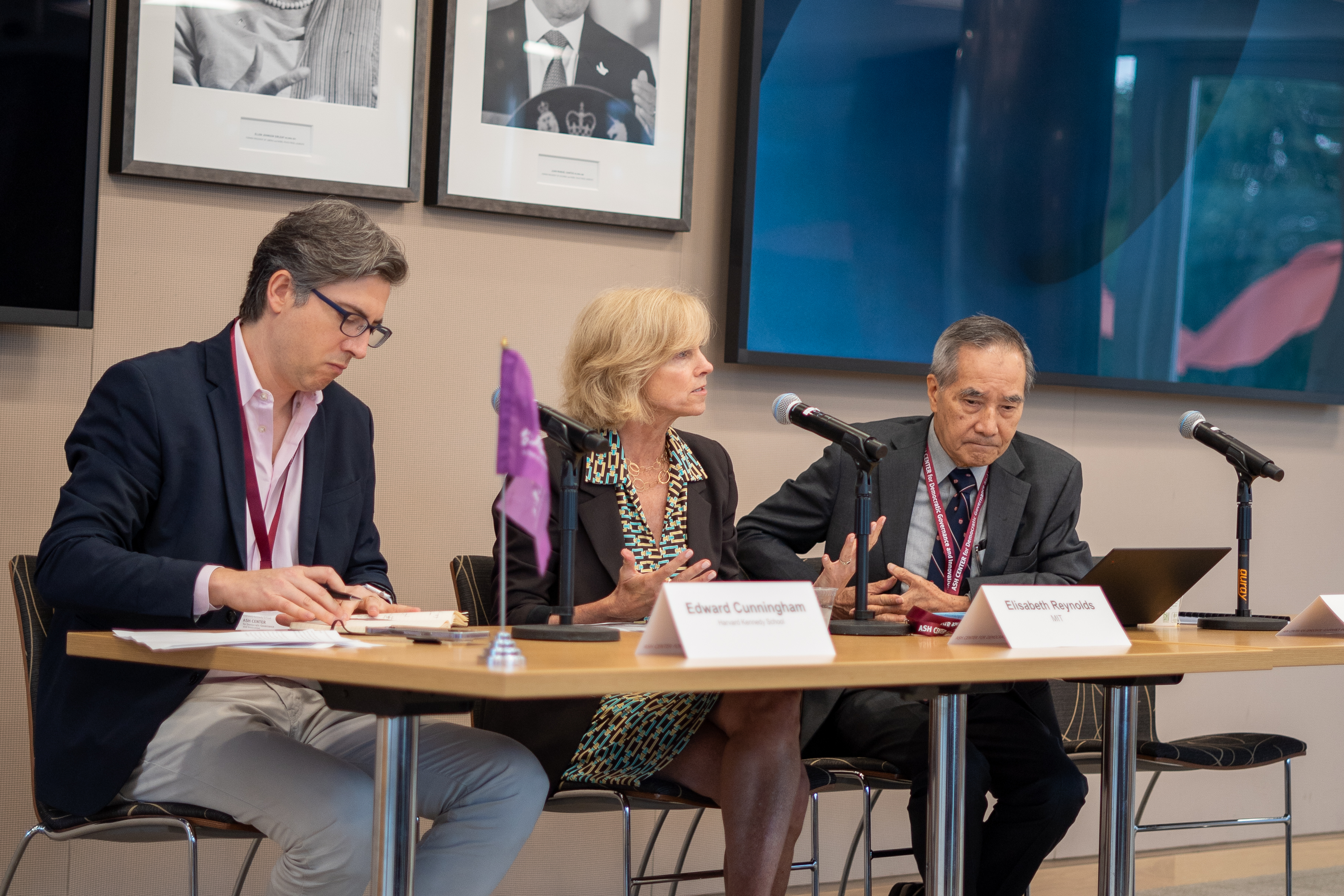
Panel C
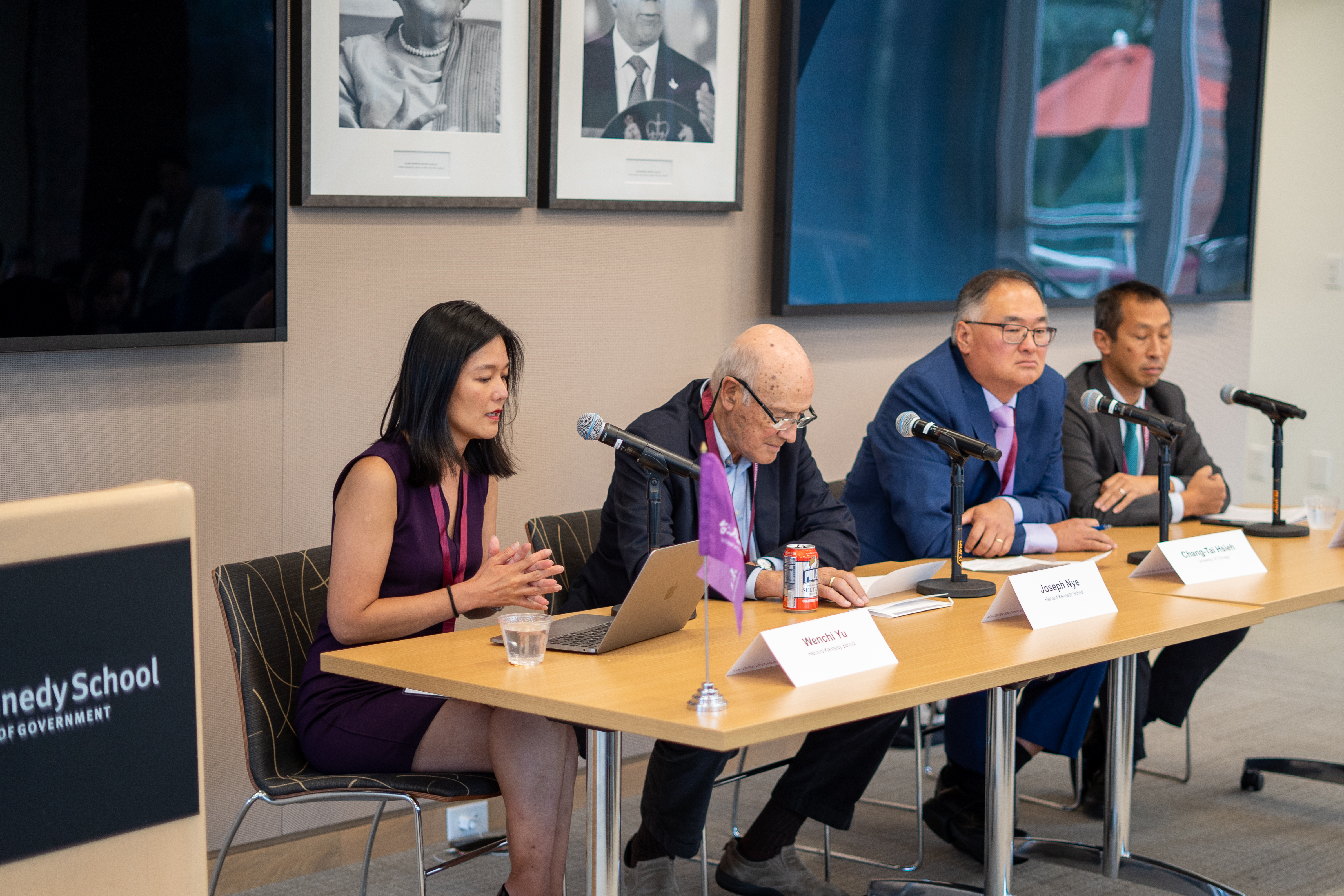
Panel D
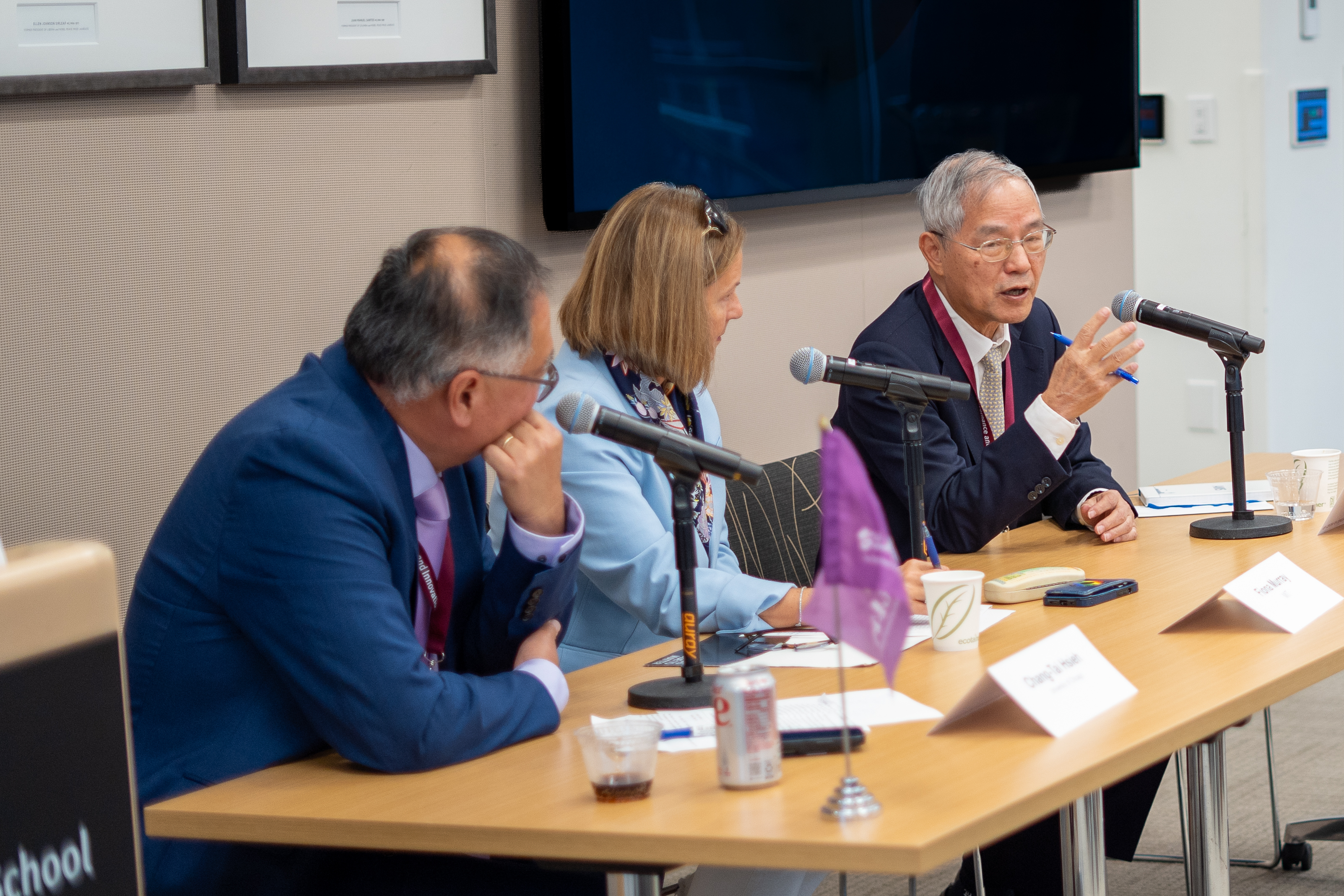
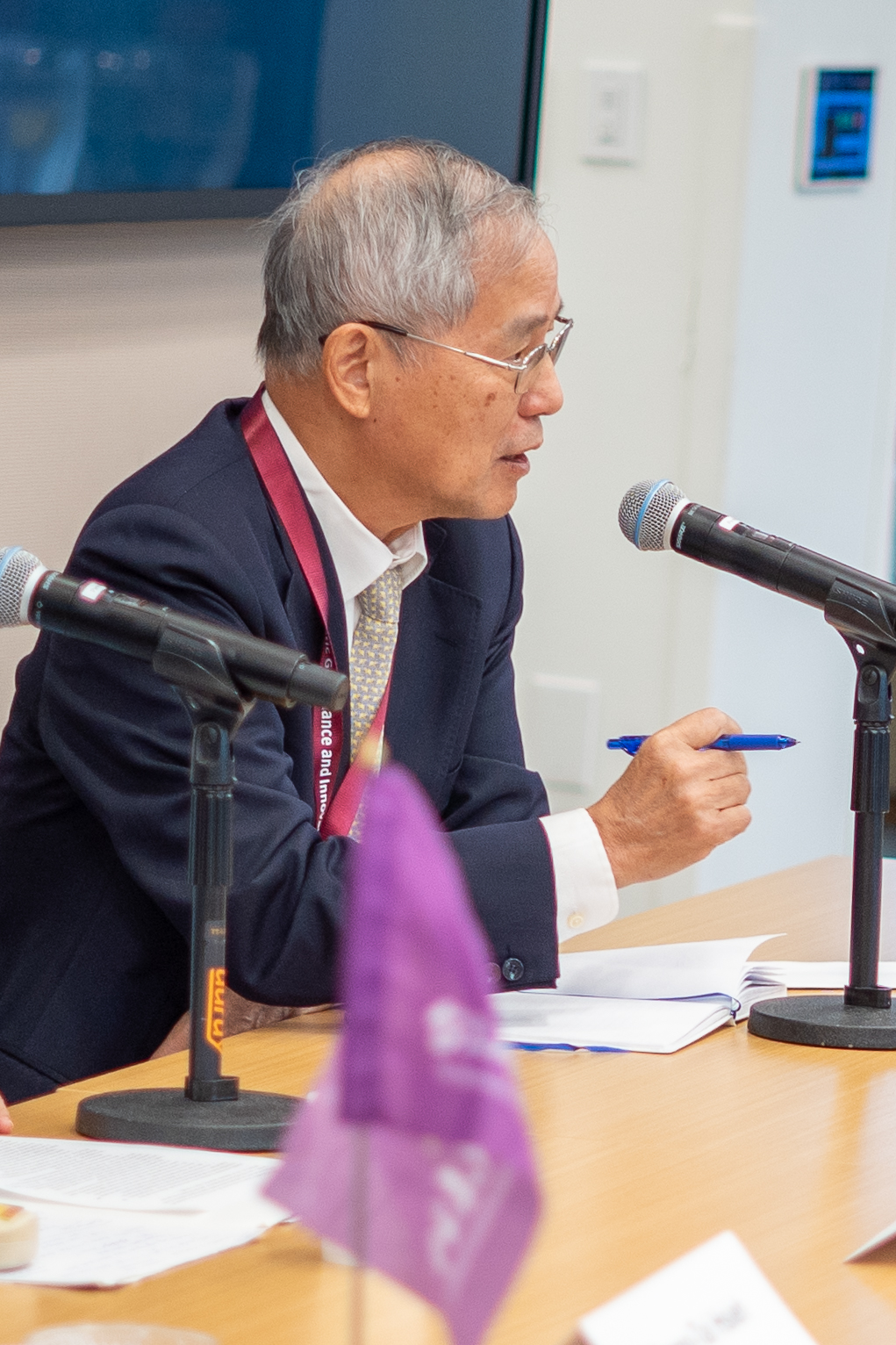
 中文
中文
 英文
英文

